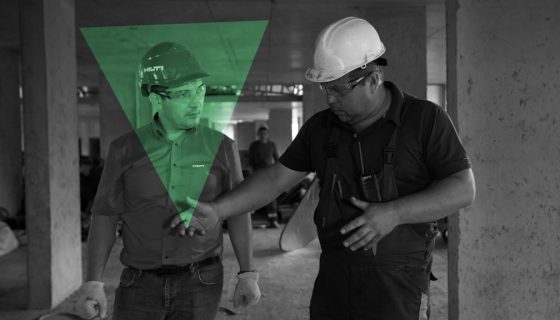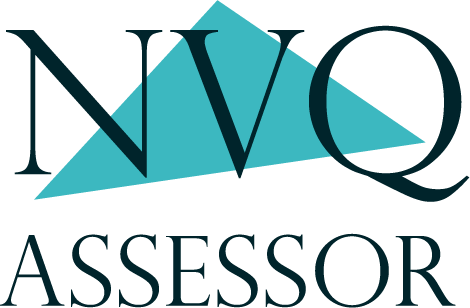Blog post v9
 By Katherine Little
By Katherine Little
Published 11th Jan 2023 | Blog
So you want to become an expert in vocational education? Then you’ll need two different qualifications. The Level 3 Certificate in Assessing Vocational Achievement (CAVA) and the Level 3 Award in Education and Training (AET). Now we know those are a lot of words and maybe confusing! So let’s go through it together and explain why you should consider completing the AET alongside the CAVA.
The Level 3 Award in Education and Training (AET) and the Level 3 Certificate in Assessing Vocational Achievement (CAVA) are two valuable qualifications for individuals who are interested in pursuing a career in education and training. These qualifications are designed to provide individuals with the skills and knowledge needed to teach and assess learners in a variety of settings, including vocational education and training.
CAVA
The CAVA is specifically designed for individuals who are interested in assessing learners’ vocational achievements. It covers the principles and practices of assessment, including how to design and use assessment methods that are appropriate for the vocational context, and how to provide feedback and support to learners. The CAVA also covers the legal and regulatory requirements that must be met when assessing learners’ vocational achievements. By completing the CAVA course, individuals will be able to assess learners’ vocational achievements accurately and fairly, which is essential for ensuring that learners have the necessary skills and knowledge to succeed in their chosen field.
The CAVA course is comprised of 3 Units.
- Unit 1 – Understanding the Principles and Practices of Assessment
- Unit 2 – Assess Occupational Competence in the Work Environment
- Unit 3 – Assess Vocational Skills, Knowledge and Understanding
Let’s have a look at the units in a bit more detail.
UNIT 1
The first unit is all theory-based and will give you the knowledge that you need in order to understand all the responsibilities of an Assessor. This is unfortunately one of the biggest units because it covers a lot of detail.
UNIT 2
The second unit requires you to conduct 2 assessments on 2 separate learners. If you use a training provider like Brooks and Kirk they have a guarantee of access to learners so you don’t have to find them yourself, and it cuts out the middle man. Within this unit, you get to start planning and carrying out real-life assessments. You will be guided through different techniques you can use to assess your learners.
UNIT 3
Within the final unit of the CAVA course, you will be assessing learners in their learning environment. Focusing on their knowledge and understanding. Like Unit 2, in Unit 3 you will be giving the learners some work to complete and then you will assess them on that.
AET
The AET on the other hand is an introduction to teaching and is suitable for individuals who are new to teaching or those who are considering a career in teaching. It provides a broad understanding of the principles and practices of teaching and learning, including how to plan and deliver effective lessons and how to use a variety of teaching methods to engage learners. The AET also covers the legal and regulatory requirements that must be met when teaching in the United Kingdom.
One of the biggest benefits of the AET course is that it provides a solid foundation in teaching and learning principles. This includes knowledge of different teaching methods, how to plan and deliver effective lessons, and how to create a positive learning environment. By completing the AET course, individuals will be well-equipped to deliver effective and engaging lessons, which will help them to be successful as educators and trainers.
Much like the CAVA the AET has 3 units which you must complete. These are:
- Unit 1 – Understanding Roles, Responsibilities and Relationships in Education and Training
- Unit 4 – Facilitate Learning and Development in Groups
- Unit 5 – Understanding Assessment in Education and Training
UNIT 1
The first unit is entirely knowledge-based. Where you will learn the roles and responsibilities of a teacher in Further Education.
UNIT 4
Unit 4 requires you to deliver a Micro-Teach session and evaluate your own practice. In this unit, you will gain a better understanding of how you can plan, deliver and evaluate inclusive learning and techniques.
UNIT 5
Finally, in Unit 5, you will look at assessment and how it is used in Education and Training and you will also learn how to include your learners in assessment. As well as what the requirements are for record keeping. Overall being a better teacher and assessor.
Together, these two qualifications provide a comprehensive understanding of the principles and practices of education and training, as well as the skills and knowledge needed to teach and assess learners in a vocational context. By completing these qualifications, individuals will be well-equipped to pursue a career in education and training and will have a competitive edge in the job market.
A benefit of completing both courses is that they provide a recognised qualification. Many employers look for these qualifications when hiring for education and training roles. Having these qualifications can open up more job opportunities and make you stand out from other candidates. Furthermore, these qualifications could lead to better pay or progression opportunities.
In conclusion, The Level 3 Award in Education and Training (AET) and the Level 3 Certificate in Assessing Vocational Achievement (CAVA) are two valuable qualifications for individuals interested in pursuing a career in education and training. They provide the fundamental knowledge and practical skills for teaching and assessing learners in a vocational context, and will help you to be a competitive candidate in the job market.
If you have any questions about either course then please send us an email at hello@nvqassessor.org.uk and we will be happy to answer any and all questions.
NEWSLETTER
Fortnightly Assessor Jobs, Blog Posts and Exclusive Content straight to your inbox.
Welcome!
So you want to become an expert in vocational education? Then you’ll need two different qualifications. The Level 3 Certificate in Assessing Vocational Achievement (CAVA) and the Level 3 Award in Education and Training (AET). Now we know those are a lot of words and maybe confusing! So let’s go through it together and explain why you should consider completing the AET alongside the CAVA.
The Level 3 Award in Education and Training (AET) and the Level 3 Certificate in Assessing Vocational Achievement (CAVA) are two valuable qualifications for individuals who are interested in pursuing a career in education and training. These qualifications are designed to provide individuals with the skills and knowledge needed to teach and assess learners in a variety of settings, including vocational education and training.
CAVA
The CAVA is specifically designed for individuals who are interested in assessing learners’ vocational achievements. It covers the principles and practices of assessment, including how to design and use assessment methods that are appropriate for the vocational context, and how to provide feedback and support to learners. The CAVA also covers the legal and regulatory requirements that must be met when assessing learners’ vocational achievements. By completing the CAVA course, individuals will be able to assess learners’ vocational achievements accurately and fairly, which is essential for ensuring that learners have the necessary skills and knowledge to succeed in their chosen field.
The CAVA course is comprised of 3 Units.
- Unit 1 – Understanding the Principles and Practices of Assessment
- Unit 2 – Assess Occupational Competence in the Work Environment
- Unit 3 – Assess Vocational Skills, Knowledge and Understanding
Let’s have a look at the units in a bit more detail.
UNIT 1
The first unit is all theory-based and will give you the knowledge that you need in order to understand all the responsibilities of an Assessor. This is unfortunately one of the biggest units because it covers a lot of detail.
UNIT 2
The second unit requires you to conduct 2 assessments on 2 separate learners. If you use a training provider like Brooks and Kirk they have a guarantee of access to learners so you don’t have to find them yourself, and it cuts out the middle man. Within this unit, you get to start planning and carrying out real-life assessments. You will be guided through different techniques you can use to assess your learners.
UNIT 3
Within the final unit of the CAVA course, you will be assessing learners in their learning environment. Focusing on their knowledge and understanding. Like Unit 2, in Unit 3 you will be giving the learners some work to complete and then you will assess them on that.
AET
The AET on the other hand is an introduction to teaching and is suitable for individuals who are new to teaching or those who are considering a career in teaching. It provides a broad understanding of the principles and practices of teaching and learning, including how to plan and deliver effective lessons and how to use a variety of teaching methods to engage learners. The AET also covers the legal and regulatory requirements that must be met when teaching in the United Kingdom.
One of the biggest benefits of the AET course is that it provides a solid foundation in teaching and learning principles. This includes knowledge of different teaching methods, how to plan and deliver effective lessons, and how to create a positive learning environment. By completing the AET course, individuals will be well-equipped to deliver effective and engaging lessons, which will help them to be successful as educators and trainers.
Much like the CAVA the AET has 3 units which you must complete. These are:
- Unit 1 – Understanding Roles, Responsibilities and Relationships in Education and Training
- Unit 4 – Facilitate Learning and Development in Groups
- Unit 5 – Understanding Assessment in Education and Training
UNIT 1
The first unit is entirely knowledge-based. Where you will learn the roles and responsibilities of a teacher in Further Education.
UNIT 4
Unit 4 requires you to deliver a Micro-Teach session and evaluate your own practice. In this unit, you will gain a better understanding of how you can plan, deliver and evaluate inclusive learning and techniques.
UNIT 5
Finally, in Unit 5, you will look at assessment and how it is used in Education and Training and you will also learn how to include your learners in assessment. As well as what the requirements are for record keeping. Overall being a better teacher and assessor.
Together, these two qualifications provide a comprehensive understanding of the principles and practices of education and training, as well as the skills and knowledge needed to teach and assess learners in a vocational context. By completing these qualifications, individuals will be well-equipped to pursue a career in education and training and will have a competitive edge in the job market.
A benefit of completing both courses is that they provide a recognised qualification. Many employers look for these qualifications when hiring for education and training roles. Having these qualifications can open up more job opportunities and make you stand out from other candidates. Furthermore, these qualifications could lead to better pay or progression opportunities.
In conclusion, The Level 3 Award in Education and Training (AET) and the Level 3 Certificate in Assessing Vocational Achievement (CAVA) are two valuable qualifications for individuals interested in pursuing a career in education and training. They provide the fundamental knowledge and practical skills for teaching and assessing learners in a vocational context, and will help you to be a competitive candidate in the job market.
If you have any questions about either course then please send us an email at hello@nvqassessor.org.uk and we will be happy to answer any and all questions.
NEWSLETTER
Fortnightly Assessor Jobs, Blog Posts and Exclusive Content straight to your inbox.
Welcome!

Building Services End-Point Assessor
The employer is a Training Sector organisation in Leamington Spa who specialise in developing qualifications for the Construction and Civil Engineering sectors. They develop a range of industry qualifications including Apprenticeships, which are developed and assessed by sector specialists with real industry knowledge. They currently have a fantastic opportunity an experienced Building Services Engineer or […]

Childcare Assessor (Trainee or Qualified)
KM have an exciting opportunity for a Childcare Assessor to deliver full Apprenticeships in Childcare! This opportunity is open to both Trainee and Qualified candidates. Trainee applicants – this is a great opportunity for a Room Leader (or above) to transition to a new and rewarding career within the training industry! Qualified Assessors – applications […]

Skills Tutor
Educated Appointments are delighted to be supporting a fast-growing premier provider of accountancy training and apprenticeships. Due to increased demand for apprenticeship training programmes they are looking out for new Tutor to join our team. This role sits within the Impact Skills Team and ultimately reports to the Programme Delivery Director. This role includes travel […]

Business and Education End-Point Assessor
The role of an Apprenticeship End-Point Assessor is to provide independent, fair, reliable, and consistent assessment services to Training Qualifications UK customers working with Apprenticeship Standards. End-Point Assessors are required to use assessment experience with robust and relevant industry knowledge to form judgements and grading decisions upon the completion of a variety of assessment activities, […]
